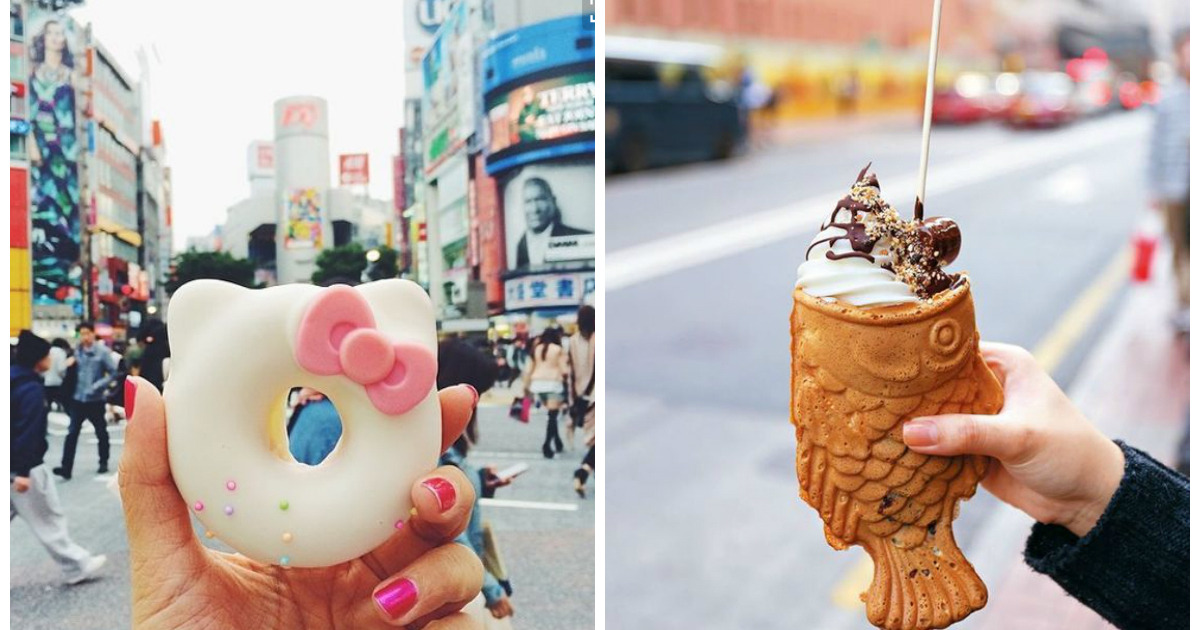15 Stories That Prove Repairmen Are Full of Surprises


Amy Chavez is an American journalist who lives in Shiraishi Island, Japan, and writes columns about mysterious Japan for several Western publications. We at Bright Side are truly fascinated with Amy’s observations about the life-changing lessons people can learn from the Japanese.
When you first set foot in Japan, it’s hard not to be impressed by the social order and efficiency of everything. The streets are clean, trains run on time, and the people are quiet and polite, yet a bit eccentric, which gives them an extra charm (cosplay, long lines for chicken ramen flavor ice cream, or Lotteria’s 5-patty tower burger).
Even the shortest trip to Japan can be a life-changing experience. No one returns to their country the same person as when they left it. I came up with the following observations and conclusions after talking to a number of tourists and people who live in Japan.
Japanese street-style fashionistas
In Japan, you quickly learn not just to accept favors but to return them as well. Do you remember the thank you note that never got written or the birthday card that you bought but never sent? That won’t happen in Japan! Returning favors is important for smooth relations here.
On the other hand, the return favor does not need to be of equal value. For example, if somebody gives you a helping hand in moving a new sofa into your house, you can just buy them a soft drink to show your appreciation.
Japanese people always remember to thank someone the next time they see them. It may seem over the top, but it’s always pleasant when someone makes a point of saying, "Hey, thanks for your help moving that sofa the other day!" That’s really nice!
Politeness and refined manners are very important in Japanese culture. If you stop in the street to ask directions, you’ll either get a detailed hand drawn map from a passerby, or a shopkeeper may leave his shop to lead you to the right path. Politeness means instilling selflessness in yourself — when you go out of your way for others and don’t think “What’s in it for me?”
The best way to show others how important they are to you is by putting them first. Giving your friend the biggest piece of cake, your relative the most comfortable seat in the restaurant, your guest the center position in the photo, or baking a cake and sharing it with your neighbors are all part of everyday life in Japan.
There are even special seats for guests in a traditional Japanese house. The seats are placed in front of the tokonoma (alcove), where the most beautiful pieces of Japanese art are displayed: hanging scrolls, ceramics, flower arrangements, etc.
There is no such thing as going out for a drink or to a party with only some of your co-workers. Everyone at work is invited! There will be no awkward moments when some people later realize that they haven’t been invited to the party. All the people present are included in photos too, without concern for whether someone is actually a member of the family, a friend, or even a part of the scene. Including everyone will teach you to promote tolerance towards those who are different from you.
There is an expression in English: "Finders keepers, losers weepers." But not in Japan! If someone drops an umbrella or another useful thing on the sidewalk, they will definitely find it either laying in the same place or on the nearest bench when they return. Taking other people’s things is wrong!
Even the tourists in Japan will note that there are many drunk businessmen on the streets at night (and even some during the day). Drinking doesn’t beget violence in Japan, and bar fights are rare. If you plan to make the most of your day, you needn’t be afraid that you may wake up with a black eye, torn sleeves, or without a wallet the next day. You can often see some quiet drunk people in decent suits sleeping peacefully on a park bench on Saturday mornings.
A world-class railway system (and public transportation in general), one of the best postal systems in the world, and quality health care are excellent examples of areas accurately controlled by the government. It’s hard to think that the private sector could do these things any better.
Japanese society highly appreciates modesty and humility and can’t stand impudence. People wait in a long line without complaint. There is no road rage. There are no raised voices, no skeptical sighs, no ”Why are people so stupid?“, no dirty looks, no facial expressions that seem to say “Stay out of my way or I’ll hurt you.” And, pretty soon, travelers find themselves feeling quite comfortable in Japan and willing to breathe the air of tranquility.
The Japanese will always give you a chance to express your opinion first. They’re really good listeners! Listening to others and not seeking to dominate the conversation is very important. In this way you become more tolerant and less judgmental when you try to understand other people’s views. Whatever the topic, the Japanese tend to discuss it rather than debate and impose their own views on others.
Deep down, everyone feels their native country is the best in the world. Therefore, it’s useless to try to prove to a foreigner that your country is the most amazing one. And in general, there is no such thing as ”the best country in the world."
Funny food in Tokyo — a "Hello Kitty" donut and a fish waffle ice cream
There isn’t an equivalent to this word in the English language. Many of us give up doing something when we find out that it requires more time, money, or energy than we had planned. However, in Japan you’re expected to see it through to the end and make every effort to accomplish it. Japan instills a sense of ganbaru because everyone around you is doing the same.
In Japan, when someone promises to do something, they mean it. And they won’t forget it, no matter what! They will come to your event, even if it’s pouring with rain. Skipping the event without notice isn’t tolerated — you can either call in advance saying that you won’t be able to attend it and apologize, or you can send someone else in your place.
During the World Cup Soccer match in Brazil in 2014, the Japanese fans amazed everyone by cleaning up their section at the stadium. If you’ve been to Japan, this won’t surprise you because the Japanese always clean up after themselves. Even in the cherry blossom season when they have picnics in the parks, you would never find a disposable cup laying there on the grass.
If you have a house party, you can be sure that everyone will help you clean up and wash the dishes before they leave. It’s also pretty common to see an accountant sweeping the sidewalks in front of the company building. They often organize neighborhood clean-ups in which everyone is expected to chip in.
Daigo-ji temple in Kyoto
If we were to choose one word to describe Japanese people, it would be "graceful." All social classes, regardless of their origin and income, engage in the same elegant behavior. For example, no one would use their index finger to point to someone or something: instead they will make a subtle hand gesture. They dress well, greet everyone with a smile, and pass something to someone else with both hands.
One of the lessons foreigners learn in Japan is the importance of being on time. It shows respect for others and explains why everything runs more reliably and efficiently in this country.











